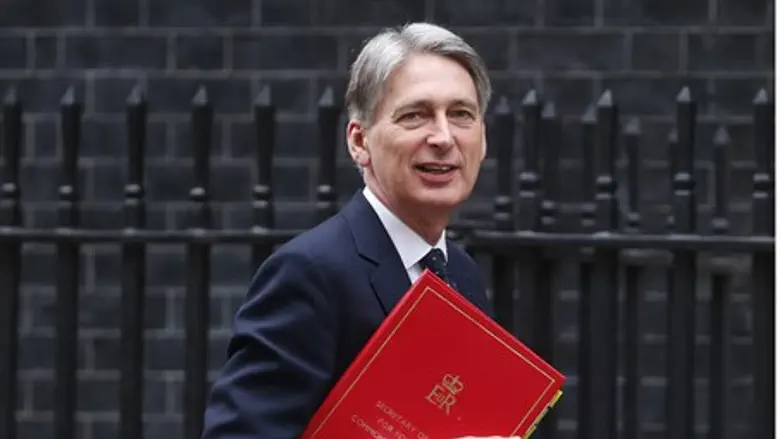
British Foreign Secretary Philip Hammond said he was heading to Israel later Wednesday to explain the Iran nuclear deal in person and voiced hope Britain could reopen its embassy in Tehran this year, according to AFP.
Briefing parliament about the agreement unveiled on Tuesday, Hammond said he would speak to Israeli Prime Minister Benjamin Netanyahu on Thursday "to convey our message about this deal directly."
Britain is one of the six world powers - along with China, France, Germany, Russia and the United States - that struck the agreement with Iran after a 13-year stand-off over its disputed nuclear program.
In return for curbs on its nuclear program for at least 10 years, Iran will be freed from Western and UN sanctions that have crippled its economy.
Israel has slammed the deal as a "historic mistake".
But Hammond said he was confident that Israel would be "pragmatic" in dealing with the "new reality" in the Middle East.
"I am going tonight to Israel and will have a chance to convey our message about this deal directly to Prime Minister Netanyahu tomorrow," Hammond said.
"He has made clear that he intends to fight it all the way and that Israel will seek to use its influence in the US Congress to obstruct the progress of the deal. I am confident that that action will not succeed."
"I am also confident that Israel has shown, time and again, that it can be pragmatic and that once it has exhausted that avenue of opportunity, that it will seek to engage in a sensible and pragmatic way to deal with the new reality on the ground in the Middle East, to the benefit of everyone."
The agreement is aimed at ensuring Iran does not obtain a nuclear bomb, in return for opening up Tehran's sanctions-stricken economy.
Netanyahu said Tuesday that Israel was not bound by the deal, signaling that he remained ready to order military action.
He believes the deal will not prevent Iran from acquiring nuclear weapons that could be used to target Israel.
Plans to reopen Britain's embassy in Tehran, which was stormed by protesters in 2011, were announced last year but progress has been slow.
"There are some technical issues, as I've explained to the House before, on both sides that will have to be resolved before it can be done," Hammond said on Wednesday.
"I very much hope that we will be in a position to reopen our respective embassies before the end of this year, and I look forward to going to Tehran to do so," he said.
Diplomatic ties between Iran and Britain, the former colonial power, were strained long before the closure of the embassy in 2011.
There has been a string of major flare-ups in recent decades including over a fatwa issued against British author Salman Rushdie by Supreme Leader Ayatollah Khomeini in 1989 and the seizure of 15 British sailors by an Iranian naval patrol in the northern Gulf in 2007.
